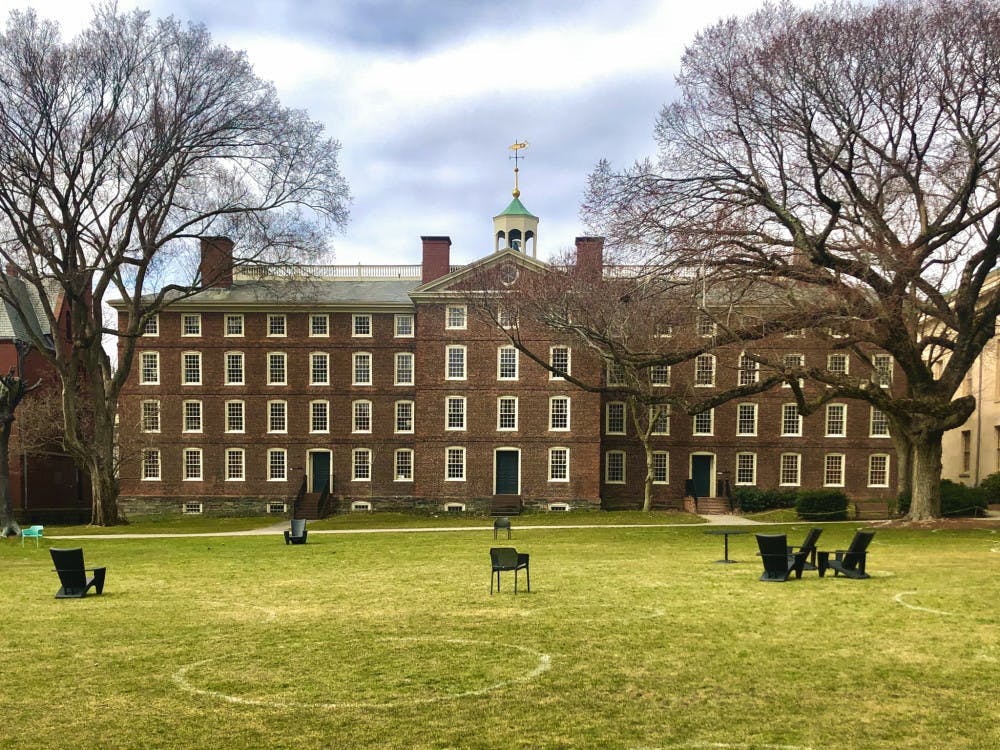In the wake of the U.S. evacuation from Afghanistan, Brown and RISD have made plans to host Afghan scholars and students seeking refuge from the Taliban takeover.
Working with Scholars at Risk, an organization dedicated to the protection of persecuted scholars, Brown intends to set up at least one Afghan scholar-in-residence position, wrote University Spokesperson Brian Clark in an email to The Herald.
The University may also accept up to 20 students for the rest of the 2021-22 school year in partnership with the New University in Exile Consortium and Asian University for Women, Lydia Duan, program associate at AUW, wrote in an email to The Herald. Both organizations are working to relocate displaced Afghan students.
The University is in the process of finalizing its plans and will announce more details in the coming weeks, Clark wrote.
RISD will also host an Afghan scholar from the Scholars at Risk network, RISD Spokesperson Jaime Marland wrote in an email to The Herald. RISD will offer the scholar a term appointment with salary and benefits.
The magnitude of the crisis for scholars in Afghanistan has been apparent since early August, said Clare Robinson, the advocacy director for Scholars at Risk. “Over a typical year, we might receive 400 or 500 applications from scholars around the world,” Robinson said. But in the span of a few weeks after the U.S. began pulling out of Afghanistan, the organization received more than 1,200 applications from the country.
Robinson noted that most of the Afghan scholars who have applied are afraid to return to their university campuses and are in hiding. Some scholars express fear of persecution for their collaborations with Western organizations, their gender activism or their ethnic identity, she added.
Scholars at Risk was able to select 43 scholars out of 1,228 applicants based on their academic qualifications, the level of risk they face and their fit with the partner universities, Robinson said. “We have a very thorough review process, and we have actually tried to shorten it for Afghanistan because of the numbers” of applicants.
Moving forward, Scholars at Risk will work with its partner universities to issue the appropriate visas to the chosen scholars and help them find exit pathways from Afghanistan, Robinson said.
Duan also noted the dangers Afghan students face due to the Taliban takeover. “We have a robust network of students and alumnae (who) come from Afghanistan,” Duan wrote. “A large portion of our Afghan AUW students are Hazara, an ethnic minority group that has historically faced persecution.”
Because of its connection to Afghanistan, AUW decided to help evacuate 148 Afghan students from the country.
“It was a harrowing ordeal for the students that involved three separate attempts to evacuate,” Duan wrote. “On the second attempt, the students were in seven convoys outside of the airport when the suicide bombing attack occurred. Students sat in buses for over 40 hours as they passed through multiple Taliban checkpoints.”
The students were forced to leave all their personal belongings behind as they boarded flights and were flown to multiple locations before finally landing at the Fort McCoy Military Base in Wisconsin, Duan wrote.
Arien Mack, founder of the New University in Exile Consortium, said the organization quickly joined in AUW’s effort to relocate these students once they arrived in Wisconsin. The Consortium sent out an appeal to its partner institutions asking them to take in students and provide them with tuition waivers. It was able to find academic placements for all students who wished to continue their studies, Mack said.
Robinson and Mack both said Brown was responsive to their organizations’ respective requests. Faced with the surge in application numbers, Scholars at Risk reached out to all of its partner universities about hosting an Afghan scholar and received quick responses, Robinson said.
As “one of the early founding members of the Consortium,” Brown’s membership has made it easier for the organization to expand its network for assisting students in need, Mack said. The organization received “many, many positive responses” from Brown and other universities after it sent out requests about relocating Afghan students.
Robinson also stressed the need for continued advocacy on the behalf of displaced Afghan scholars and students. “I would encourage students to use your own skills to raise awareness about the situation through articles, social media … (and) outreach to your representatives,” she said.
AUW is now working to recruit up to 500 female Afghan students to come to its campus in Bangladesh, Duan wrote. The organization is actively seeking volunteers to help the students with their preparatory English training as well as partnerships with institutions like the University to facilitate these volunteer programs.
“More universities should rise to the occasion,” Mack said. “The lifeblood of universities is academic freedom, … so one of the things that we ask of every university is that they speak out for the importance of academic freedom, both here in the United States and everywhere else where it is sharply affected and curtailed.”





